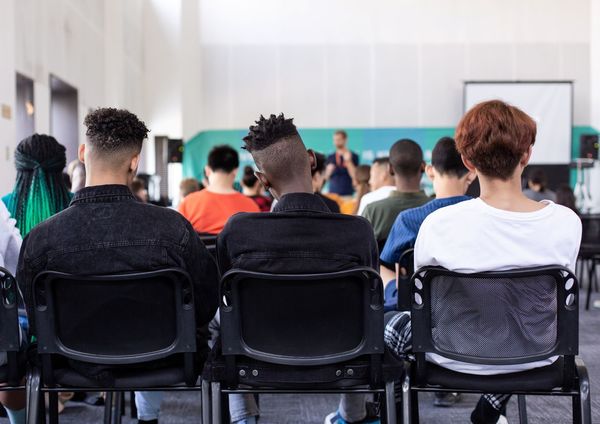
Outsmarting poverty means starting at the source. When it comes to criminal justice work, this means intervening before a person winds up in federal prison. And so we’re getting involved, launching a Criminal Justice Initiative focused on the community corrections level.
We’re teaming up with a cohort of five innovative service providers—some of poverty’s fiercest adversaries working to improve the lives of those in community corrections. These organizations are partnering with us to design, implement, and evaluate interventions to identify long-term solutions that break the tie between poverty and crime.
Finding these solutions often involves a narrower focus than even the community level. The Fathers & Families Support Center (St. Louis, MO) knows that poverty and crime can both be traced to and the cause of fatherless families, and aims to help fathers who have been previously engaged with the local criminal justice system transition back to family and community life.
Gatekeepers (Hagerstown, MD) has a similar mission to support ex-offenders as they navigate the unique challenges that come with a criminal record and time in jail. Its Business of Living curriculum and peer mentorship program are designed to address all aspects of a person’s experience as they leave jail and begin to build a life of freedom.
Public Advocates in Community Re-entry (PACE) (Indianapolis, IN) knows that one of the greatest obstacles someone with a criminal record faces is finding gainful employment. PACE’s suite of employment services is deeply relationship based, tapping into a network of local employers who are prepared to receive an ex-offender employee to directly connect people to reliable job opportunities.
But breaking the cycle doesn’t have to wait until after a person leaves the system. The Johnson County Department of Corrections (Olathe, KS) is exploring using its adult residential center as an alternative to jail for low-risk offenders, with the idea that this arrangement can make it easier to offer programming and preserve the community connections so crucial to picking up the pieces once a sentence has been served.
The Lubbock County Detention Center (Lubbock, TX) is also working to change the way jails deal with inmates. While violence is usually met with solitary confinement or other punitive measures, Lubbock County—through its Step Up program—is focusing on lasting behavioral change by helping inmates develop non-violent conflict resolution strategies to use while in jail and to reduce recidivism.
Over the coming months, we look forward to pursuing long-term impact by launching rigorous, thoughtful evaluations with these incredible partners. By enabling them to better execute their courageous missions, we will be one step closer to learning what works in the fight against poverty. Learn with us.